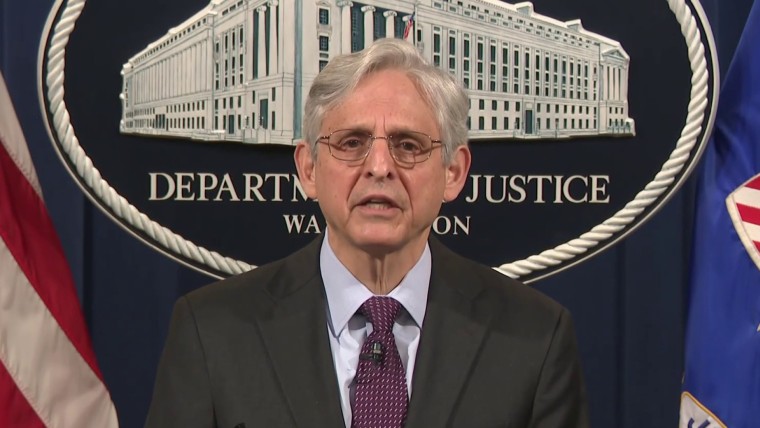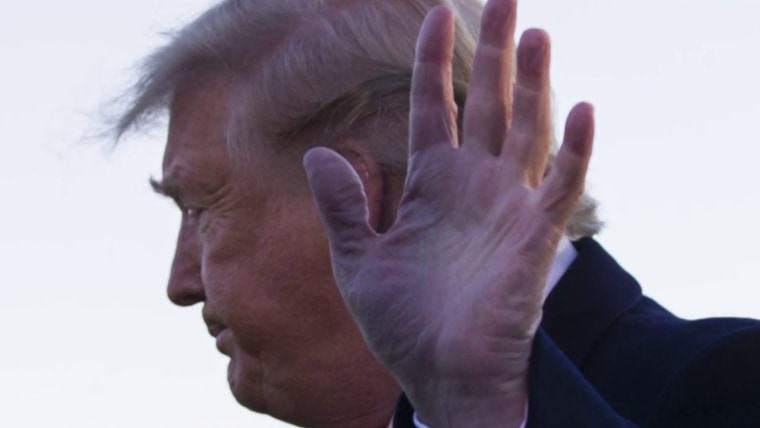At the end of former President Donald Trump’s second impeachment trial, 43 Republican senators voted to acquit him. The reasoning that most leaned on to absolve Trump of the charge at hand — inciting the Jan. 6 attack on the Capitol — relied upon a dubious procedural objection: The Constitution, they claimed, precluded the Senate from conducting an impeachment trial of an individual who no longer held office.
Legally, this argument is frivolous.
That argument was clearly wrong as a matter of constitutional text, historical practice, and common sense. But its ramifications were driven home on Tuesday when Trump’s lawyers argued in a civil suit filed against him that his Senate acquittal was, in fact, a substantive exoneration — and should thereby foreclose civil suits seeking to hold him liable for any violence that he allegedly incited in January.
Legally, this argument is frivolous. There’s no legal principle that would let the Senate’s 57-43 impeachment trial vote shield the former president from other lawsuits. But it’s not an argument designed for the courts; it’s for public consumption.

No matter how it plays before a judge, that his team would even file it only reinforces how short-sighted it was for senators to hide behind a flawed procedural argument to avoid taking a substantive position on Trump’s responsibility for his actions — and how they can atone for their myopia.
Trump’s novel argument is included in a motion to dismiss the suit Rep. Eric Swalwell, D-Calif., filed in March. In his filing, Swalwell claimed that Trump, Donald Trump Jr., Rudolph Giuliani, and Rep. Mo Brooks, R-Ala., each violated federal civil rights and D.C. incitement laws when they spoke at the rally immediately leading up to the Jan. attacks.
As NBC News’ Pete Williams summarized, Trump’s claim is basically that, “because he was impeached, tried in the Senate and acquitted, Trump cannot be sued for the same conduct.” We shouldn’t be shocked if this theory also appears as Trump’s lawyers respond to additional cases against him — including a suit under the Ku Klux Klan Act brought from Rep. Bennie Thompson, D-Miss., and 10 of his colleagues.
Trump’s lawyers cited to no authority in federal law for their proposed grounds for dismissal. That’s not surprising — no such authority exists.
Trump’s lawyers cited to no authority in federal law for their proposed grounds for dismissal. That’s not surprising — no such authority exists. The Constitution’s Fifth Amendment protects Americans against “double jeopardy,” banning consecutive criminal trials for the same offense. But the Constitution makes clear, beyond any doubt, that impeachment doesn’t count. Here’s the text of Article I, Section 3, Clause 7:
“Judgment in Cases of Impeachment shall not extend further than to removal from Office, and disqualification to hold and enjoy any Office of honor, Trust or Profit under the United States: but the Party convicted shall nevertheless be liable and subject to Indictment, Trial, Judgment and Punishment, according to Law.”

In other words, the Constitution’s text reinforces what common sense makes plain: Even someone who is convicted in an impeachment trial remains liable in a subsequent criminal indictment and trial for the same conduct. The same necessarily follows for someone who is acquitted. But even if the Constitution weren’t explicit on this point, an acquittal in a criminal prosecution is never a bar to a civil suit brought by the victims against the defendant — as anyone who remembers the O.J. Simpson cases can well attest.
The parallel legal doctrine in civil litigation is known as “res judicata,” or claim preclusion. There, the idea is that a party that has lost a suit and exhausted their appeals should not be allowed to bring the same claims against the same defendants all over again in a new suit. But that doctrine, too, doesn’t have the slightest application to this situation. The Senate’s impeachment trial was not a judicial proceeding; the parties are not the same; and, once again, the Senate’s judgment does not have legal effect.
However silly the acquittal argument is as a matter of law, this new claim by Trump’s lawyers highlights a far more troubling political point.
Of course, it’s easy to dunk on bad legal arguments. And Swalwell’s suit against Trump, like Thompson’s, may encounter other obstacles along the way, including the difficulty of suing a president based on conduct undertaken while he was in office. But however silly the acquittal argument is as a matter of law, this new claim by Trump’s lawyers highlights a far more troubling political point: Three months ago, GOP senators avoided having to either publicly condemn or condone Trump’s conduct surrounding the Jan. 6 attack. The no-trial-of-former-officials argument was cover, nothing more. This new filing drives home just how transparently self their attempted fence-sitting necessarily was — Trump and his supporters would view, and have viewed, any acquittal as tantamount to the very substantive exoneration that at least some of those same senators were, quite clearly, unwilling to provide.
And so, even if this argument is laughed out of a courtroom, it may well resonate in the court of public opinion — at least among the former president’s supporters. If nothing else, that possibility reinforces why the creation of a 9/11 Commission-style investigative body to revisit the Jan. 6 attacks — and to get to the bottom of Trump’s role therein — is such an imperative. If the same senators who cleared Trump on an invented technicality want to make amends, they should now support the bill to create such a commission that passed the House last week.

